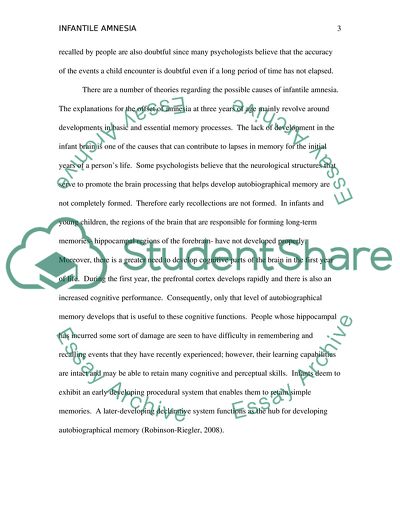Cite this document
(Infantile Amnesia Term Paper Example | Topics and Well Written Essays - 1000 words, n.d.)
Infantile Amnesia Term Paper Example | Topics and Well Written Essays - 1000 words. https://studentshare.org/medical-science/1739655-infantile-amnesia-and-its-causes
Infantile Amnesia Term Paper Example | Topics and Well Written Essays - 1000 words. https://studentshare.org/medical-science/1739655-infantile-amnesia-and-its-causes
(Infantile Amnesia Term Paper Example | Topics and Well Written Essays - 1000 Words)
Infantile Amnesia Term Paper Example | Topics and Well Written Essays - 1000 Words. https://studentshare.org/medical-science/1739655-infantile-amnesia-and-its-causes.
Infantile Amnesia Term Paper Example | Topics and Well Written Essays - 1000 Words. https://studentshare.org/medical-science/1739655-infantile-amnesia-and-its-causes.
“Infantile Amnesia Term Paper Example | Topics and Well Written Essays - 1000 Words”. https://studentshare.org/medical-science/1739655-infantile-amnesia-and-its-causes.


